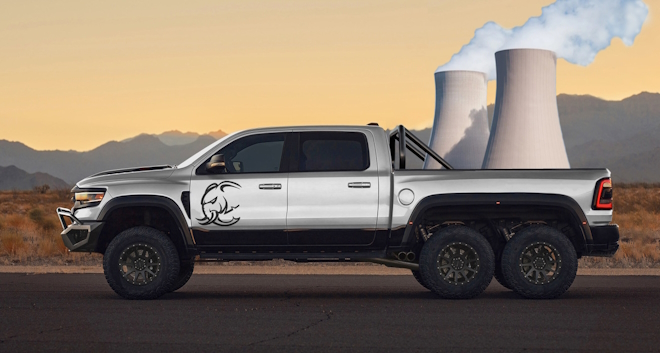The Biden administration seems to be doing everything politically possible to force Americans away from the internal combustion engine and into electric vehicles. Whether the Climate Change alarmists are right or wrong, this is still probably a noble goal, but is it a remotely feasible one?
First off, the electric car is not the new phenomenon it claims to be. There were electric cars at the turn of the century (and by that I mean the turn of the 19th into the 20th century, 123 years ago). We had electricity. We had these new-fangled auto-mo-biles. Two plus two equals = an enduring mystery. The gas-powered engine took over, and soon no one even remembered the electric car, until roughly a century later, when Elon Musk, among other creative badasses, reinvented the thing…and charged us upwards of $50,000 for it.
The climate is, indeed, warming. Data shows this pretty clearly. Man-made or natural cycle? Hard to tell, but it’s probably not man-made. But is it really the emergency the professional climate doomsayers say it is? Maybe. Hard to tell. What gets me is how universally wrong professional predictors always are. Economists? Wrong as much as they’re right. Sports betters? Not much better. Half of the reason we revere Nostradamus, or even remember his name, is that his predictions were just hazy and poetic enough to be massaged into sounding right, even when they weren’t. Still, if he weren’t somewhat accurate, we wouldn’t be so amazed…because the rest of them are wrong so damn often.
Electric cars are less DIRECTLY polluting, but are they really? We still generate most of our electricity by burning natural gas and coal. So, on the whole, how much pollution will we stop? Will it just be transferred from the exhaust pipe to the factory? Does this matter, since at least the symbolism does matter? If we keep inching toward a world with no fossil fuels, toward some combination of wind, solar, geothermal, hydro-electric, even nuclear (which doesn’t generate air pollution but might turn your kids’ skin a beautiful shiny, cancerous shade of neon pink), then moving away from gas-powered cars does make environmental sense. Still, that dream appears farther away than Joe Biden desires…much like his dream of stringing together two consecutive coherent sentences.

One of the other two current major problems with this plan is the undeniable fact that the vast majority of Americans can’t freaking afford electric cars. They cost tens of thousands of dollars. There haven’t been enough of them around long enough for there to be used electric car dealers. Adding some tax incentives helps, but if even with the incentives they’re still 3 or 4 times the cost of gas-powered cars, then most of the country, with our ever-widening income gap, simply won’t be able to afford them.
Also, we don’t generally mine what goes into their batteries in America. China does…but do we seriously need to be more indebted to China than we are now. Don’t they already basically own us?
If new cars didn’t require so damn much computerization, I might be much more onboard with this plan. I don’t want anyone to be able to access my driving remotely, which IS what will happen with fully-computerized internet-capable vehicles. Future hackers will hijack your station wagon, and demand ransom money. This will happen. Future cops won’t need to pull you over. They’ll just shut your car off remotely. No more high-speed chases. No passing Go, no collecting $200, just off to jail. Car chases have been movie staples for decades, so Hollywood will suffer along with the rest of us.
I’ve got mixed feelings about this push for electric cars. With a few adjustments (a societal move to clean energy and a totally non-computerized electric option, which is doable because it already happened more than century ago), I could be talked into backing this one…but I don’t see anyone talking about my issues, just repeating rehashed political pabulum that crumbles under scrutiny after fifteen seconds of logic-based research. Time will tell.
